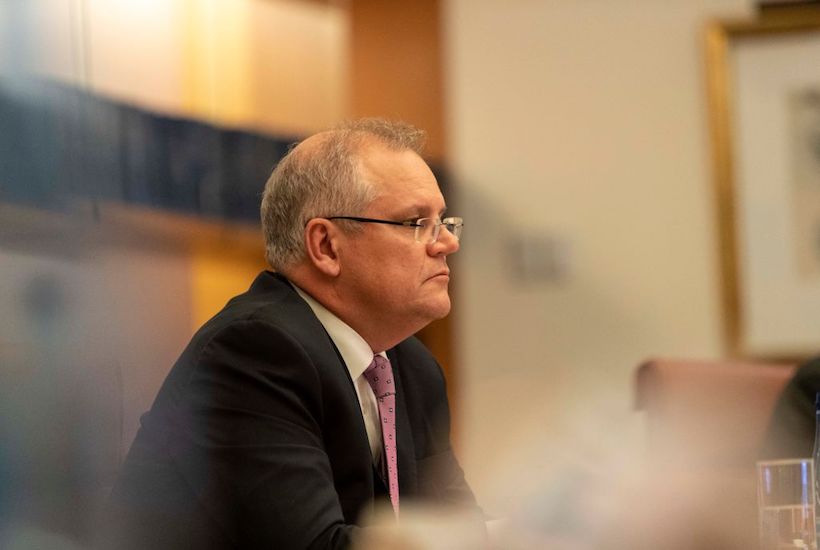It is truly staggering how quickly fortunes can change. At the beginning of this year, the economy was ticking along nicely, and the budget was on track to go into surplus. No one could ever have predicted that a virus originating in a city that many in the West had never even heard of would upset the apple cart so drastically, but coronavirus has done exactly that. Not only is much of Europe in total lockdown, but headlines such as “Saudi Arabia indefinitely postpones Friday prayers” and “The Philippines bans the entry of all foreigners” are now expected, and cause barely a raised eyebrow.
In Australia, the strongest travel and lifestyle restrictions ever enacted in our nation’s history have come into effect, and, as the economy freefalls, government policy is being made at such a rate of knots that writing on this issue is itself a tricky business. But while extreme public health measures are largely warranted, it’s incorrect to assume this means that similarly radical economic measures are also always justified. Although decisive and extensive economic action is a must for the government at this time, policymakers and the public should not throw out their critical faculties and rapidly dive headlong into any half-baked fiscal measure that garners public support in the here and now.
A good example of such a half-baked fiscal measure is the Change.org petition, which has nearly half a million signatures at the time of writing, that calls for the “government and the banks … [to] freeze all mortgages, rent and bills for casual workers and full-time employees affected by the downturn since COVID-19”, and for the state to provide “a financial salary substitute … for all per hour workers who are now struggling” (presumably above and beyond current Centrelink safety nets). While I usually ignore online petitions as a matter of principle, it is hard to ignore the popularity of such drastic, and costly, proposals among both those justifiably worried about the virus, and our politicians in Canberra; and it is worth thinking rationally about such kneejerk responses.
Firstly, I’m not saying that such fiscal radicalism does not have a certain kind of allure. After all, desperate times call for desperate measures, right? Well, no, at least not always yes. Prudence should forever trump radicalism in economic policy, even in a crisis such as the one we are now facing. And two key lessons, which point us away from such radicalism, need restating in the time of coronavirus, and will help bring prudence into the public conversation.
Lesson one is that financial crises, downturns, and depressions occur with a frequency that people are very quick to forget. While they may differ in their cause and extent, Australians need to remember that before this coronavirus induced recession there was the GFC. Before that, it was the “recession we had to have” of the early 1990s, and so it goes on ad infinitum. Indeed, economic history is, in many ways, the history of continual booms and busts, and to think of this bust as some ‘one-off and never-before-seen’ meltdown is a failure in historical reflection. At every intermittent recession, there is much misery, joblessness, family breakdown, suicide and the like, but such woe is never without precedent.
The second important lesson that needs to be imbibed by politicians and the public alike is that it is not within the government’s power to compensate Australians to the point that there will be little to no adverse impacts for families and communities. This is not to say that government should do nothing in the way of fiscal stimulus, but given the scale of the crisis, the government has the potential to easily overburden future generations with excessive debt if it overborrows in a vain attempt to stave off any and all potential impacts of the crisis.
Putting these two lessons together, you get a slightly more cool and rational picture than the headlines would otherwise provide you with. Indeed, these two lessons demonstrate a fundamental truth: that, economically speaking, the nation is dealing with a recession similar to many others in history, and has only a limited capacity to offset its negative impacts. We should not, like the authors of the petition mentioned above, see our current predicament as without historical precedent, and believe that the government either could or should financially reimburse anybody and everybody impacted by coronavirus.
We are, as a nation, going through a testing and troubling time, but we should remember the saying of Rumi that “this too shall pass”. Some semblance of normality will return and, no matter how far away that day is, we need to be a functioning country when it comes. We must not borrow ourselves into oblivion, and only prudent leadership, and an understanding from the Australian people that they will have to face significant pain, will ensure that our great nation does not come out the other side of this crisis saddled with unserviceable debt, and in a state of financial ruin.
Got something to add? Join the discussion and comment below.
Got something to add? Join the discussion and comment below.
Get 10 issues for just $10
Subscribe to The Spectator Australia today for the next 10 magazine issues, plus full online access, for just $10.


























Comments
Don't miss out
Join the conversation with other Spectator Australia readers. Subscribe to leave a comment.
SUBSCRIBEAlready a subscriber? Log in